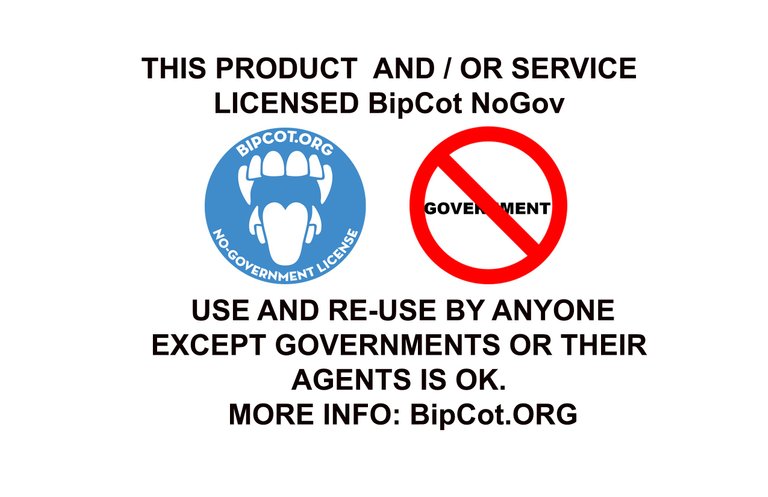Many of you are probably familiar with the concept of consensus. At its most basic level, it is simply the idea that if a group of people sit down to make a decision, then through actually listening to each other and being open-minded, a solution can be reached wherein everyone agrees, or at least isn't a hard "No". This is of course in total opposition to the idea of democracy, where if 51% people want to make something happen, then the other 49% are simply forced to go along with it.
Sounds pretty great right? It certainly is, and moving into this new paradigm of decentralized, voluntary, non-hierarchical organization, it is going to be implemented in most communities worldwide, each with their own variation. There are currently communities & organizations around the world putting this model into use, and the basic concept goes back to our earliest tribal communities. There is nothing more human than sitting in a circle with the people in your community, figuring out how to move forward with some challenge/opportunity.

Image Source
How It Works: Two VERY Different Examples
The Rainbow Gathering
Currently the largest-scale example of consensus-based decision making is the Rainbow Gathering, where thousands of people from around the world for weeks at a time in temporary autonomous cities. This has been occurring since 1972, and all major decisions (basically anything that affects more than just one person) are decided by sitting in council and discussing until there is a consensus. Since I already covered this pretty in depth in Five Decades of Beta Testing Anarchist Society, I'll just include a quote from that here:
All decisions of any import at/about the Gathering, from where the next one will be held, to what will be bought on town runs, are made by consensus, usually by humans gathering in a circle. One of these circles, called councils, is probably happening at all times in a Gathering. These usually look about the same, with a group circling up, with some topic that needs to be discussed. Most often, o open the circle, everyone holds hands, breathes together, and generally ohms and/or sings together, often followed by someone explaining what the purpose of the council is. From that point, a talking stick/feather is passed around, and everyone has the opportunity to speak when they have the feather. Consensus has been reached when nobody has anything else to add.
Councils are generally open to everyone who wants to attend, or everyone who is affected for smaller-scale decision making. By deciding not to attend, you are trusting your family to reach a decision for you, and in many cases it doesn't make sense for everyone to attend every council. If you don't ever work in a kitchen, you wouldn't have much to add to kitchen council, just as someone who knows nothing about architecture or construction wouldn't have much to add to a council about building a house.
Some examples of common councils:
- Main Council begins after the Peace Prayer on July 4th, and goes on for hours a day, until a decision has been reached on the general area for the next year's Gathering. This process often takes many days. Once a general area has been decided, the council is over, and for the next year, scouts explore National Forests in the region, taking pictures, making notes, and doing general research. All of this leads back around to Spring Council.
- Spring Council begins in early June, at a central location in the region that was decided for that year's Gathering. Everyone who wants to be involved in choosing the exact location of the Gathering is welcome to attend. The scouts present the data they have collected over the past 10 months, and council operates in the usual way, until a decision has been reached. Once that happens, the GPS coordinates & directions are put up online, and Seed Camp begins, with folks building kitchens, clearing trails, running water lines, and digging shitters.
- Kitchen Council happens every morning of the Gathering. Representatives from the kitchens meet up, circle, and balance inventories, discuss any issues with the water supply, and come up with a list for whoever is going to town on a supply run.
STEEM
In its own way, the STEEM blockchain actually functions as something of a consensus system; it is certainly something of a consensus-democracy-ownership fusion. Every post/comment that is made on STEEM has a 7-day period, during which every single person with an account on the blockchain has the ability to agree or disagree with the payout value of that post. Similarly, everyone with an account has the ability to select the witnesses they wish to see at the top of the list. Throughout these, and other decisions being made on the blockchain, there are of course also many, many of these people making posts & comments about their decisions, leading to in-depth discussion from the community. Unfortunately, STEEM is very much not consensus-based in two of the most important ways:
- Everyone doesn't get an equal say; all decisions are weighted by how much $ you have in the economy. If someone is making $200+ per post, and 90% of the community thinks that it should be less, and vote that way, it only takes one or two of the whales to override the votes of 20,000 minnows. Likewise, the top witnesses are, in effect, decided by just one or two accounts.
- There is no requirement/desire to actually reach consensus. If 1/3 of the community doesn't want to move forward with a new hard-fork, or if there is a big argument about the value of a post, both things just automatically happen once "enough" agree, or when the pre-set timer runs out.
Issues With This Model
The biggest issue I see with consensus-based decision making is that it doesn't work very well in open events/groups where there are no agreements, no shared intentions, no pre-established relationships. If a group of people who all share principles, goals, agreements, or at the very least the same fundamental understanding of how reality works, then using consensus opens all sorts of possibilities for problem-solving, allows everyone to be heard, and almost guarantees the most equal & effective decisions are made.
If, however, you have a bunch of people who share little to no emotional or philosophical connections, things become much more difficult. If we go even farther and consider the results of a consensus council made up of folks with completely different understandings of how the universe works, it's almost guaranteed that progress will be minimal & slow. Imagine, if you will, a group of 30 people. 10 of these people are religious fundamentalists, believing in pure "divine will", full determinism, that everything happens because a god willed it that way, and human choice isn't even a factor. Another 10 of these people are atheistic, physical-reductionist minded folks, who believe in only the physical & visible, and are completely sure that all of reality occurs through simple chance and never-ending sequences of cause & effect. The last 10 people think more like me, understanding cause & effect (including intergenerational effects), know that much of reality is unknowable to humans, and yet also see that we are each responsible for our own experience through where we place our focus & intention. As you can imagine, these three mindsets all have very different senses of how things happen, they are all going to believe differently about whether or not the humans in the discussion even have a say that matters or not, and certainly it's going to be tricky getting everyone to agree to much.
This key issue plays out in many different ways, just at The Gathering. I think that consensus seems to require a certain level of homogeneity of mindset for it to actually work, and I certainly haven't seen any evidence of it scaling well. The success of this model is really hinged on connection & communication, so once you reach a point that everyone involved can't actually be seen & heard by everyone else, it seems to lose a large degree of efficacy. The great thing is that humans naturally organize ourselves into relatively small groups, of people we generally have a lot in common with, and there really aren't any decisions that need to be made at a scale larger than the village.
2 Times I've Watched Consensus Spin Its Wheels And Go Nowhere
Twice in the last couple of years, I have personally watched folks using a consensus method talk & talk for hours, get nowhere, and ultimately end up with a unilateral decision being made and action being taken. The first time was at the Jackalope Freedom Festival in 2016, and the second time was just a few weeks ago at this year's National Rainbow Gathering. The situations were very different, but both involved dangerous/potentially dangerous party(ies) needing to be dealt with.
Adventure #1: JackFest 2016
The first time I attended Jackfest, we had a very strange & difficult experience with someone else who had come for their first time. Leading into the second weekend of the non-event, this person did some psychedelics, and for most of the day was just kind of babbling, hollering, and wandering through the woods. No problem, right? Well, that night things took a turn for the worse. After I went to sleep, this person apparently became more and more aggressive, ultimately attacking & being subdued by Lefty, one of the other campers, multiple times. When I awoke in the morning, this was still going on, with the tripper (Gandalf) throwing lighters and such into Lefty's campfire, and simply refusing to leave him alone. At this point, a group of people got together and took Gandalf to the ground, carried him to a tree, and tied him up there. He stayed tied to this tree for many hours, with folks sitting with him, bringing water, and basically baby-sitting.
At some point in the early afternoon, someone who had been sitting with him decided that he was recovered enough to let him go, and did so. A couple of brothers spent the next hour or so coaxing him back to his own camp, leaving him there, apparently complacent, to sleep it off. The next time I saw him, Gandalf was walking into the middle of the camper & car cul-de-sac on our end of things, with 2 men following behind, one of them with his gun drawn. (Apparently one of the men had told the children to avoid Gandalf, so when he came walking through the woods and some children saw him, they ran. Unfortunately, their father simply saw his kids running away from this guy, and assumed the worst, and drew his gun.)
Everything shifted... Other people, especially those unfamiliar with this man or the earlier interactions, had their hands on their holsters now. One of the attendees kept his focus on standing either directly between Gandalf and the guy with the gun, or directly behind Gandalf, either way keeping there from being a clear shot. After a long while of people trying to corral and talk him down, we had to take him to the ground again to subdue him. This time, everyone gathered and we discussed options for the next hour or two, as most of the camp was clearing out, and there were none who wanted to take responsibility for staying with him through the rest of an already over 25 hour trip with no sign of ending. Nobody wanted to involve the state in any way, but the only other option was to take him to another campground with his car & gear, and it seemed irresponsible to leave him by himself in that condition.
One of the biggest problems with open events is that when nobody has any relationship to a bad actor, there is nobody willing to take responsibility for that person. If I show up at an event with some friends, and one of them starts acting like an ass, at least one of the rest of us would happily take responsibility for leading that person away from others, talking them down, getting their needs met, etc. The presence or lack of someone with a connection to the bad actor makes all the difference in how resolution is found.)* It was finally decided by a couple of people that he would be taken into the nearby town, and handed off to medical professionals. Most disagreed with this action, but there weren't any other viable alternatives brought up, so that's the way it went down.
Adventure #2: Rainbow 2019
This year at Rainbow the issue was longer-lasting, and involved more people, but luckily was far less violent. One of the camps that sometimes shows up at The Gathering is called "The Projects", which would fall into the category of "dirty kids". The Gathering generally seems to organize itself as something of a flow chart, with most camps being located near the camps that seem most similar to them. Pirate Camp, Hobo Alley, The Projects, etc. in one area, Instant Soup, Kiddie Village, and Lovin' Ovens in one area, and so on. Well, this year The Projects decided to set up about 400-500 feet from Instant Soup, just over a small ridge from where many Instant Soupers and Kiddie Village folks were camping.
Now, obviously at a free & open event like Rainbow, where a group of people camps isn't really of any concern to anybody else... generally. In this particular case, the folks who moved into this end of the neighborhood were often lighting off fireworks (very not OK at Rainbow), drinking (alcohol is not allowed at Rainbow), burning tires, and setting traps (digging holes and putting up trip-lines) in the woods. Over the week after their arrival, many at our camp didn't get much sleep, often being startled awake by fireworks. There was one person from ISK who was actually heading over the ridge most days, bringing them food, sweets, trash to burn (they love burning trash), weed, and so on. It seemed they were just going to be a mild annoyance that week.
Then one evening just after sunset, while I was in the kitchen cooking, the entire ridgeline lit up bright yellow. I, and many others, rushed that way, bringing water and expecting to find the beginnings of a forest fire. The Projects had about a 7 foot flame (burning low-hanging branches on the trees overhead) going, with a tire on it.
I'll save you all the details, because what followed took about two days. Let's just say that there were LOTS of conversations, and a few hours-long circles. Over the course of that time it was established that:
- This issue needed to be handled soon
- Bringing in LEOS (law enforcement) was the last resort
- The Projects kids need love & healing
- a variety of other small details/concepts
So, progress was made, in a sense. However, the fireworks & drinking continued, there were a couple of near physical altercations. (at one point someone stole their fireworks, and another tire was removed from their camp as well) Ultimately, one day we got the word that Stock Pot (another of the "dirty kids" camps) had gone over and cut down the camp, bagged everything up, and told The Projects kids that they needed to camp somewhere else, and calm down their shenanigans.
I really don't actually know exactly what to think of how it all played out. I see value in many of the personal experiences that people had, in the very presence of conflict and the bringing together that it causes, and so many of the little details... but when looking at the whole thing it mostly shakes my trust in the solidity of the container that The Rainbow Gathering strives to be.
In Conclusion
One of the things that I most love about anarchists is that we are just about the only people on the planet not saying that we know how everything should be done. Anarchist philosophy is rooted in the idea that no model is going to work for everyone, everywhere, all the time. Different communities will make decisions in different ways, and different problems are going to require different approaches from the same community. The one thing that we believe holds true across the board is that force, coercion, hierarchy, and structures that take away from the sovereignty of the individual hold no place in a world based on freedom, peace, and human flourishing.
Along the way to utopia, humanity has tried many models & systems, and for the first time in our history, we have the ability to share our experiences with everyone on the planet, in real time. For the first time in history, we have databases, blockchains, and libraries full of ever-changing, interactive reports/notes/summaries/processes from around the planet. By applying the concepts behind the open-source movement to our socio-economic models, we can assure that we are applying the most well-adapted, thoroughly tested, and individually-designed systems & approaches in every situation.
Deeper Reading
- Seeds for Change: Consensus
- ConsensusDecisionMaking.org
- Consensus as a Form of Decision Making by Martha E. Gentry
- Principle vs. Preference: The Speed of Quaker Decision-Making by C. Wess Daniels
- Consensus Decision Making by Tree Bressen

If you enjoyed this, you may enjoy some of these highlights of my blog:


I remember you telling me the story about the man at Jackfest and how intense the situation was. Situations like such are extremely difficult to deal with. You very eloquently put in words a very good point, the bad actor with no responsible parties in relation. Those experiences are always very hard to handle in a way that everyone is comfortable with. Sometimes it’s just not possible to reach a consensus.
I respect the way you all handled the projects situation at Rainbow. I think that love and care are the first methods that should be approached. Personally, I applaud Stock pot for stepping up and taking responsibility to take action and calm down the projects and get them away from kiddie village and isk. Violence is always a last resort, but it sounds like force was used in a just manner.